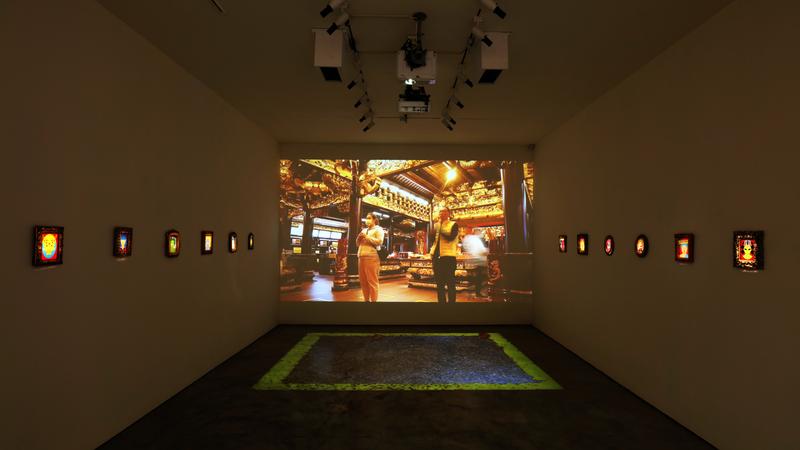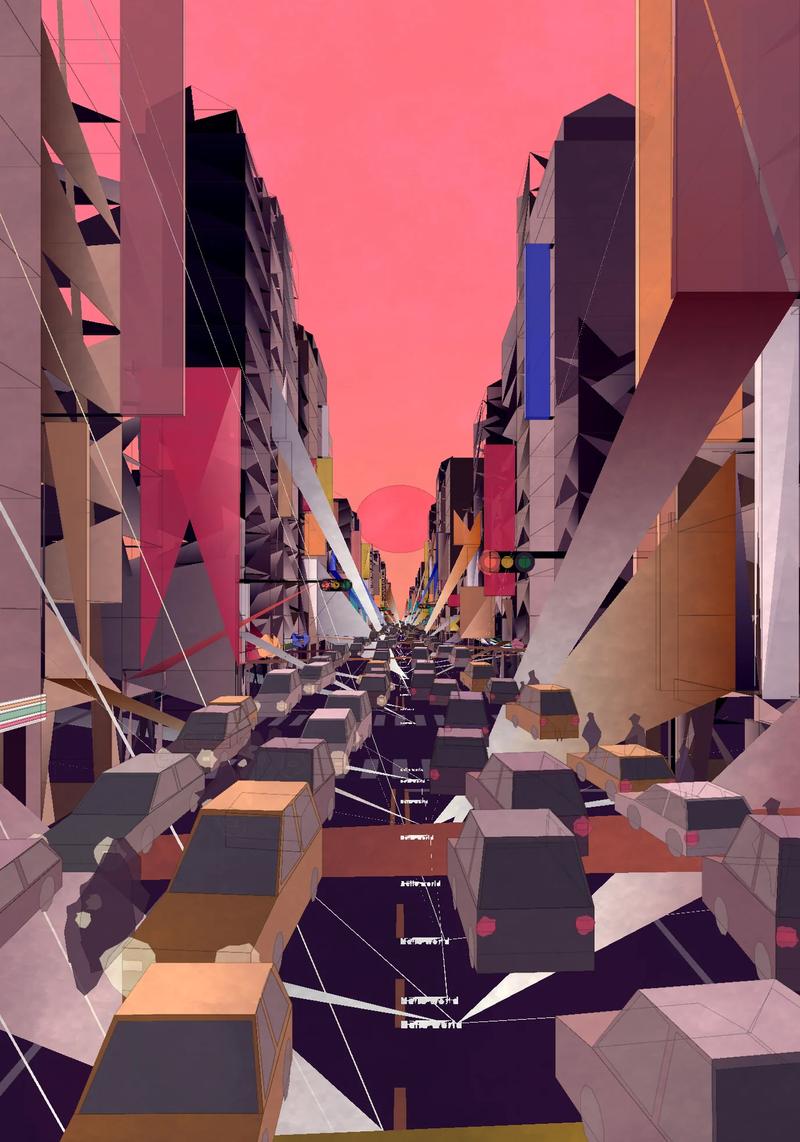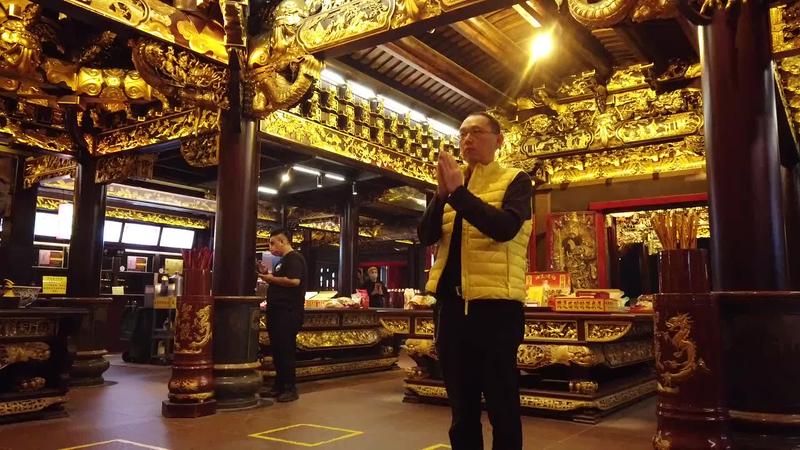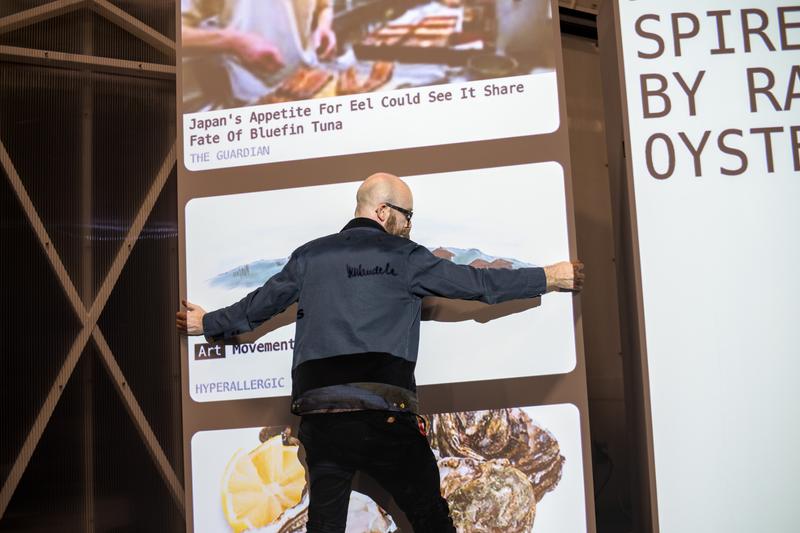ALTAR SPACE is the genesis of Yao Jui-Chung’s journey into “crypto art.” Three original works, Moon–Block–Chain, YAO COIN, and Twelve Disciples approach the new media of blockchains, cryptocurrencies, and NFTs through the old means of divination tools, Buddhist coin charms, and religious icons. The past is rich with the technology for a future mythos.
Yao Jui-Chung: Invidia was curated by Zian Chen and installed at Tina Keng Gallery (Taipei) from 5 August to 23 September, 2023. This solo exhibition brought together some 90 artworks from the past 25 years by Taiwanese artist Yao Jui-Chung that blend history, legend, fantasy, life, and politics. Many of the works produced during Yao’s artist residencies overseas are assimilations of cultural encounters and personal experiences. Invidia is both a retrospective for the artist and a vision of where the world is taking him.
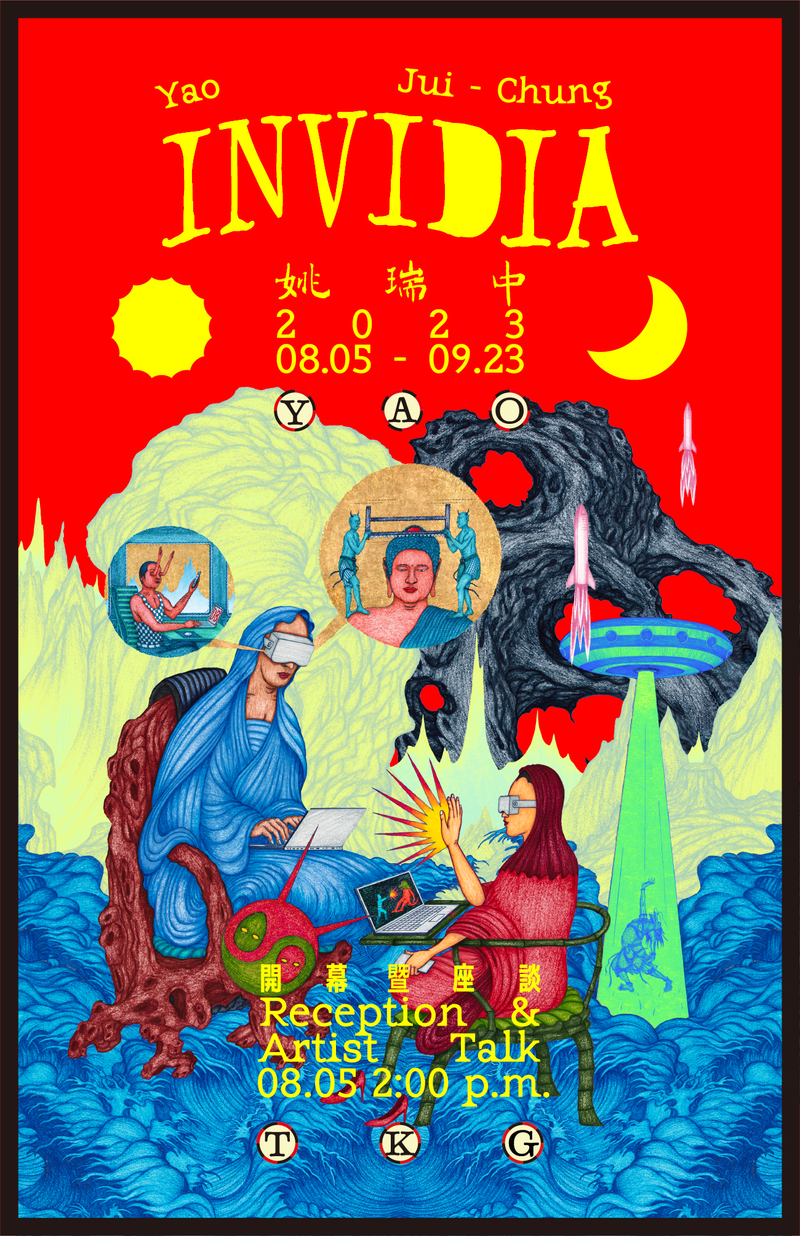
Yao Jui-Chung: Invidia, Tina Keng Gallery (invitation card)
Yao Jui-Chung is a multidisciplinary artist. His video and performance art tackles historical and political subjects; his black-and-white and instant film photography exposes peculiar religious sites and abandoned military bases; and he has published scores of art books and catalogs over decades. Yao is also a painter of “new ink art” that deconstructs the traditional medium.
Yao revitalizes Chinese landscape painting by eschewing ink wash and fine rice paper in favor of color pens, gold leaf, and rough cotton paper (or alternatively screen printing). An innovation in materials is mated with diverse motifs. These works are conversant with vernacular culture, pop culture, and subculture; world religion, folk religion, and new age spiritualism; plus science fiction, mobile computing, and social media. Yao borrows compositions from classical paintings as well as from images he finds on the Internet. The totality is vulgar and sublime in equal measure.
Crypto art is a new medium for Yao, but he gives it a familiar framing. He reads cryptocurrency as a prosperity theology, and blockchain transactions as the liturgy. He recognizes collectible avatars as idols of worship, and crypto tokens as the coin of the realm. He ponders the creation of a crypto wallet, the prerequisite of any NFT art, and makes a ritual out of it. Yao has given the name Altar Space to the site of his initiation.
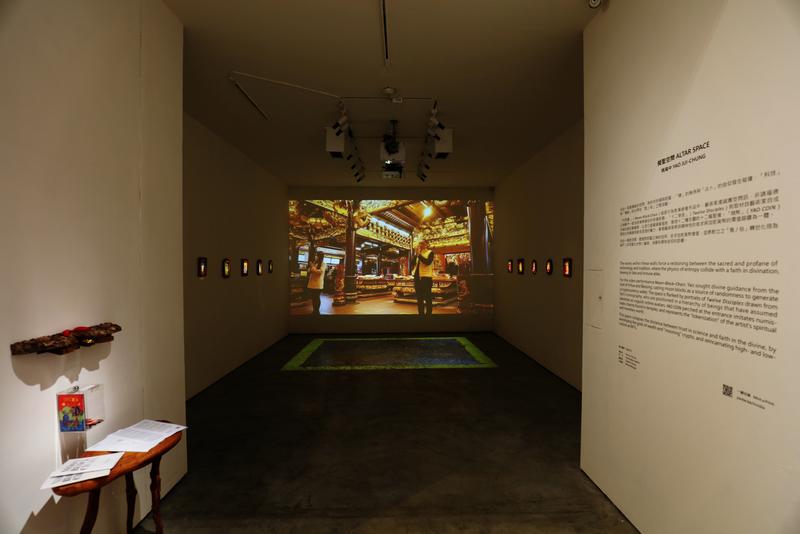
Yao Jui-Chung, Altar Space (installation view)
Altar Space admits the polarity of spirituality and technology and the strata of high- and low-culture. An annex room in the gallery transforms into a cella devoted to crypto art. Yao visits a temple and generates a cryptocurrency wallet using traditional divination tools; he prints his own coin charm and mints a digital token; and he deploys a new pantheon of crypto gods. Every technological innovation is the successor of a specific cultural practice.
Moon–Block–Chain
Moon–Block–Chain (2023) is a two-channel video shot at Hongludi Temple, a popular place of worship where believers come at all hours of the night to judge their fortunes. The videos open with a prayer to the Righteous God of Blessing and Virtue, pleading for the private key to an NFT wallet. The first video is fixed on the artist, who stands in the main hall of the temple dressed all in black save for a yellow puffer vest that matches his gilded surroundings. He prays and repeatedly casts a pair of moon blocks on the ground, while other (mostly young, masked) temple-goers carry on around him. The second video is a series of still photographs of a pair of moon blocks on the temple floor, showing the “answers” to his appeals.
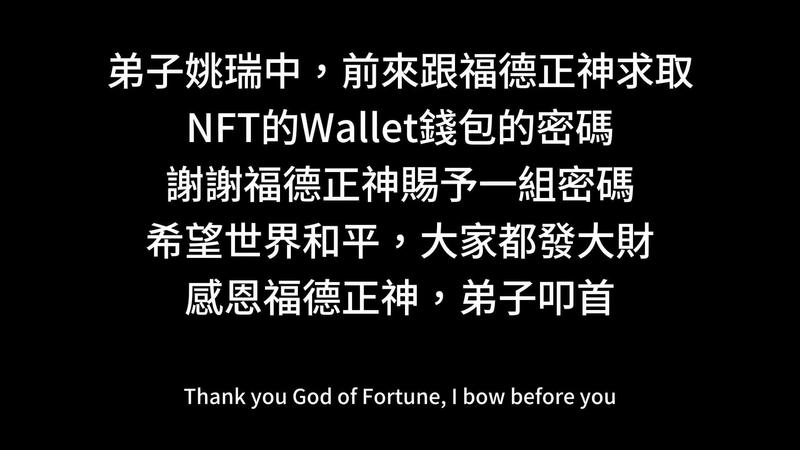
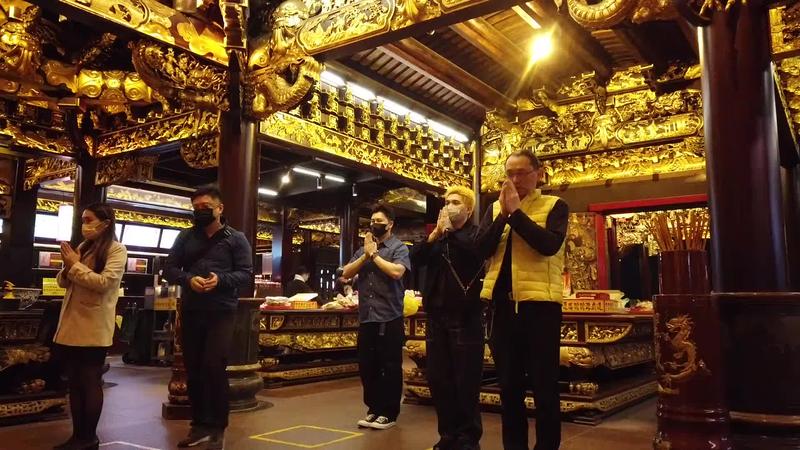
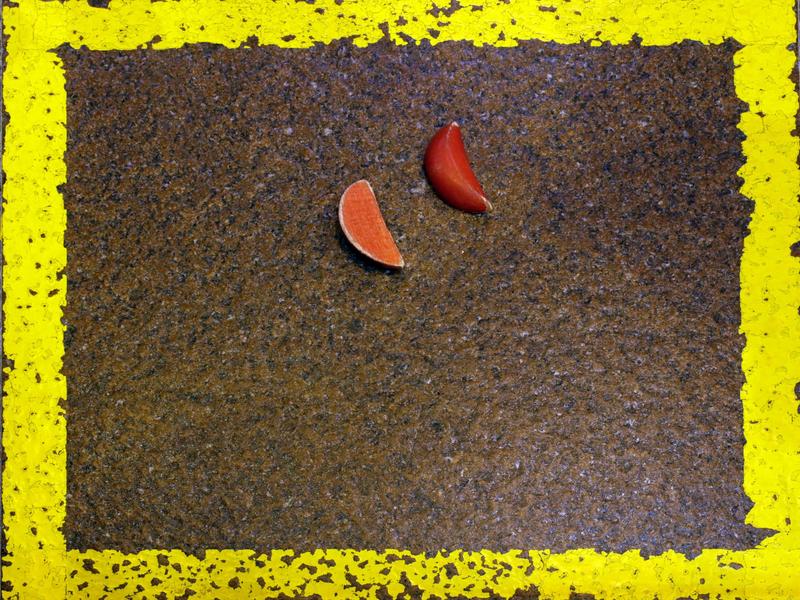
Yao Jui-Chung, Moon–Block–Chain (2023)
Moon blocks are (usually) red-colored, crescent-shaped, wooden divination tools that are commonplace at temples in Taiwan, especially in proximity to a God of Prosperity or an Earth Deity. They are used to seek divine guidance in the form of yes–no questions, often about careers, relationships, or financial decisions. If you have a quandary, pick up two moon blocks, hold them in prayer, recite your name, ask the question, and drop the blocks on the ground. Each block has a round side and a flat side. If the two blocks land opposite sides up, it means “yes,” and otherwise it means “no.” Three “yeses” in a row indicate a successful reply to your query.
Answering Yao’s prayer for a cryptocurrency wallet requires more than three tosses. It needs one-hundred and twenty-eight, to be safe. Like flipping a coin, the outcome of tossing moon blocks is random. And like heads or tails, the yes or no answers from moon blocks can be read as a sequence of ones and zeroes. A binary number that is big enough and entirely random can make for a secure private key for a wallet, which is used to generate a public address and to sign transactions on the blockchain. The steps for using moon blocks as a source of entropy are detailed in an accompanying divination guide.
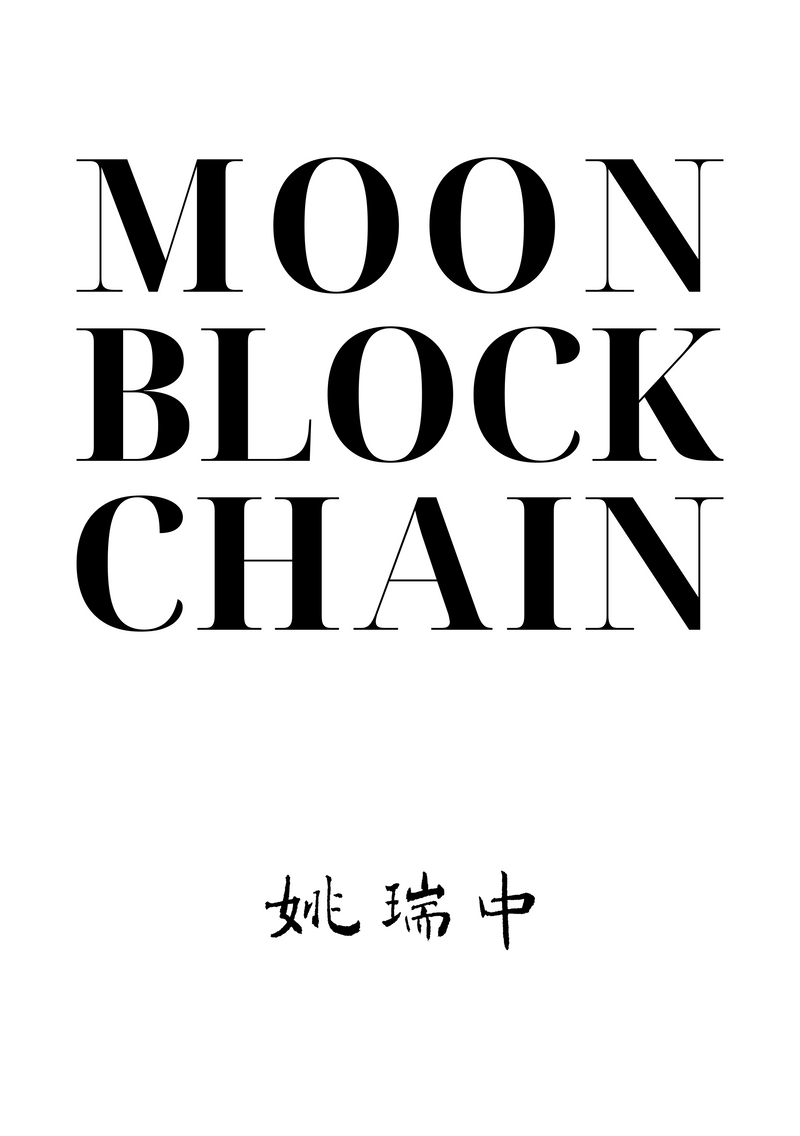
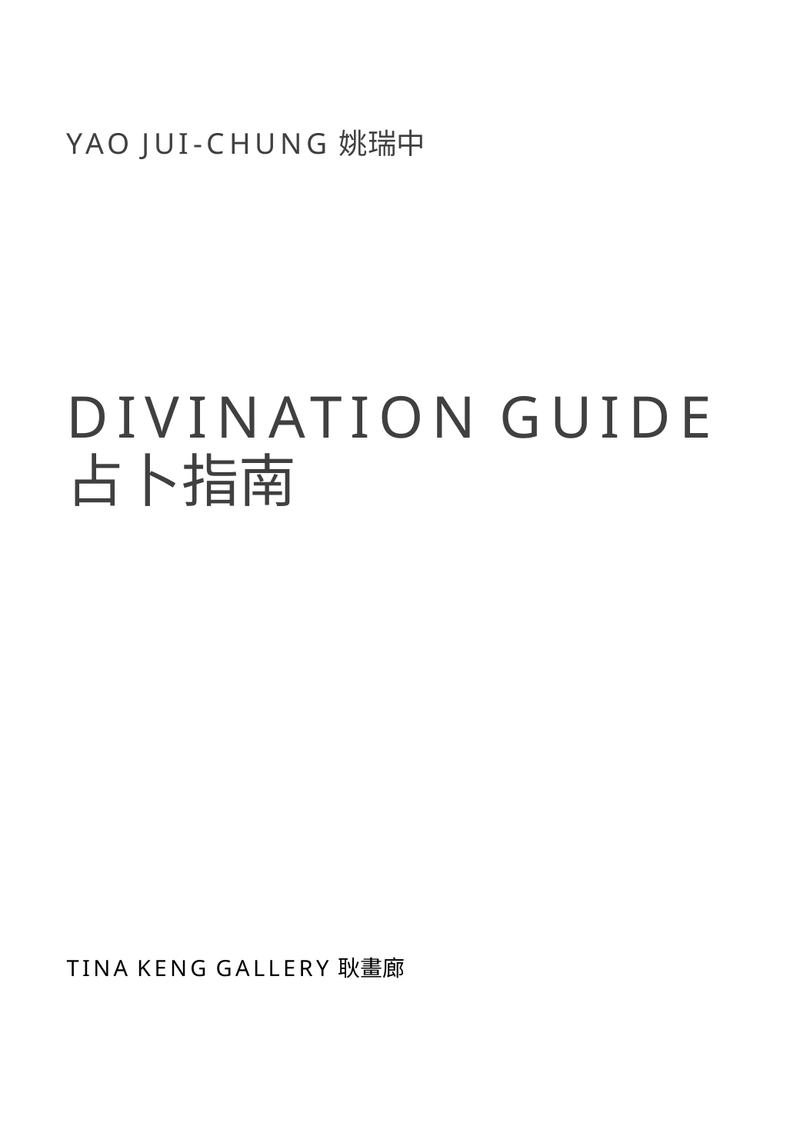
Yao Jui-Chung, Divination Guide (2023)
Favorable divination and asymmetric cryptography both rely on an unpredictable universe outside of your control. This is where faith and science each stake their claim. You could call it fate, or just physics. The means are random but the ends are constant. Praying for wealth is not so removed from playing the odds.
To redeem his communion with the divine, Yao minted two collections on Ethereum as Moon–Block–Chain: Prayers and Moon–Block–Chain: Answers. These sixty-four videos and sixty-four photos are enduring specimens of performance art and valuable documentation of a timeless custom. Each bit of the prayers and answers is transmuted into a non-fungible token (NFT), a link in the chain from supplication to indulgence and dispensation.
Open a cryptocurrency wallet, check the balance, and hope all those holdings go “to the moon.” This could be the answer to your prayers.
YAO COIN
YAO COIN (2023) is a mixed media artwork made of a stack of gold-colored paper coin charms imprinted with the artist’s monogram, a pair of red moon blocks, and an antique wood carving. At the Invidia exhibition, gallery visitors were encouraged to take a coin in exchange for a cash donation. Small monetary offerings like this are customary at temples.
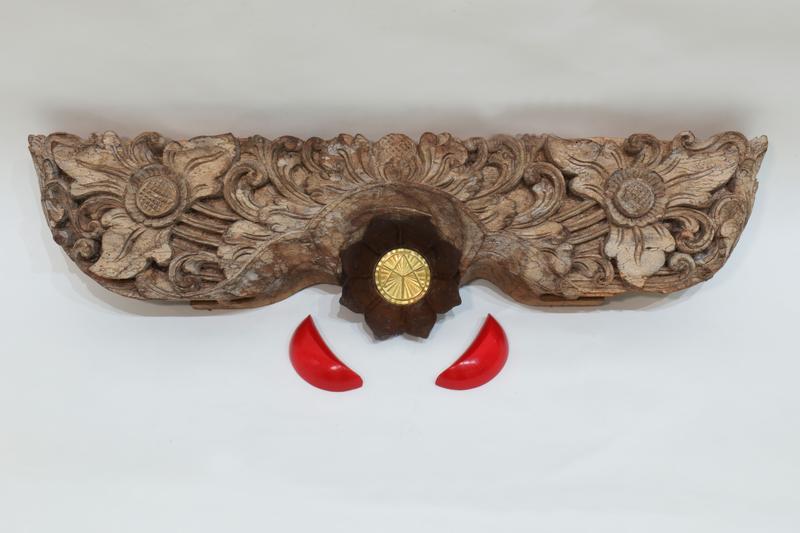
Yao Jui-Chung, YAO COIN (2023)
YAO COIN (2023) is a numismatic charm, a decorative coin that has ritualistic uses in many Eastern religions. They are not fiat money but circulate in unofficial economies. These days it’s a rite of passage of every cryptocurrency enthusiast to mint their own coin. Yao created two stop-motion animations of his charms and deployed them on Tezos as YAO COIN: SPIN and YAO COIN: STACKS. They are reminiscent of the golden Bitcoins that show up as talismans of crypto art, with Yao’s emblem taking the place of the currency symbol. Part of the artist’s spiritual and monetary worth is deposited in these tradable tokens.
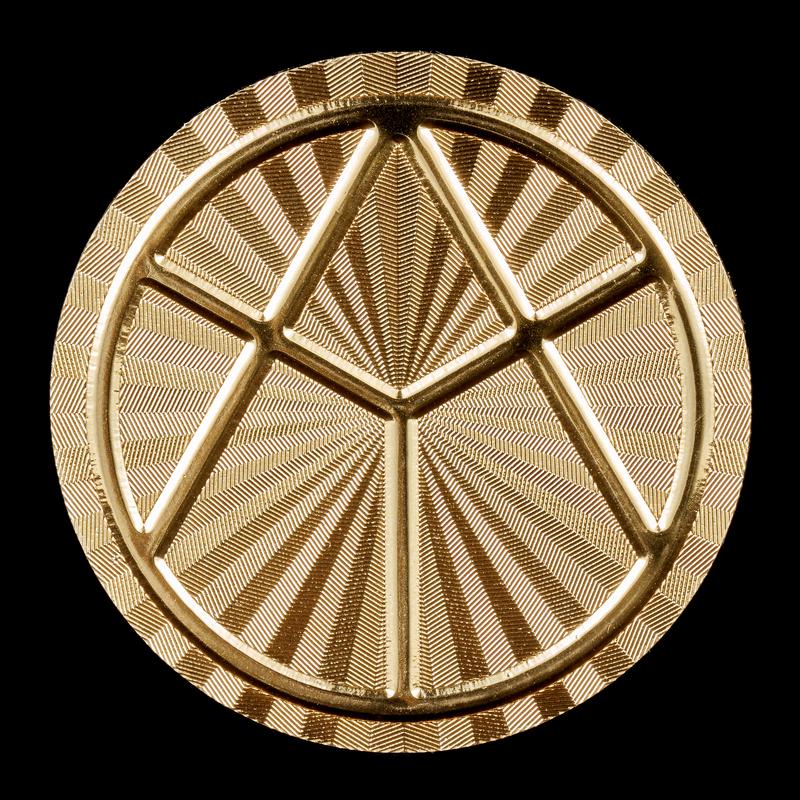
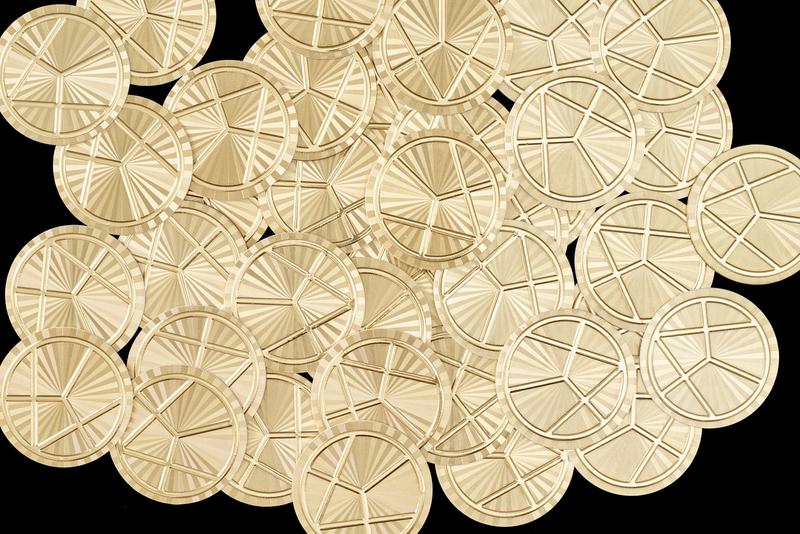
Yao Jui-Chung, YAO COIN: SPIN and YAO COIN: STACKS (2023)
These editions of YAO COIN were limited to 1000 copies. They were not for sale, but must be offered. The exchange values of the real and the virtual are separate but equivalent. Lucky wallets could benefit from having a YAO COIN in them.
Twelve Disciples
Twelve Disciples (2023) is a series of colorful avatars in vintage frames, arranged like religious icons from a strange theology. Yao drew from the extensive roster of figures and animals that populate his paintings to imagine a new hierarchy of beings in twelve echelons: Aliens, Gods, Saints, Immortals, A.I., Mutants, Humans, Fairies, Demons, Ghosts, Beasts, and Legendary Creatures. These portrayals mimic PFP (profile-picture) projects that have become popular NFT collections.
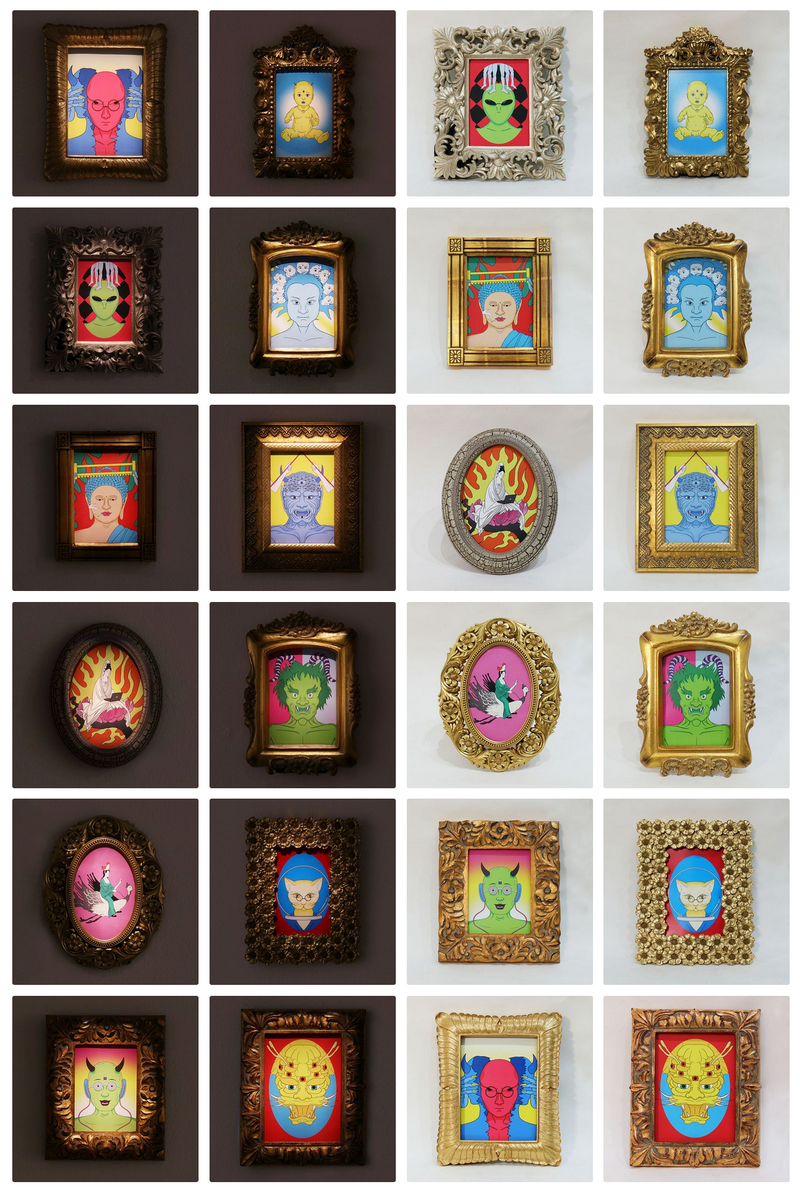
Yao Jui-Chung, Twelve Disciples (2023)
Each tier in Yao’s order of beings is occupied by a singular character. The Alien has three pairs of legs stomping on its head, which stand for the world religions that will “lose their footing” if extraterrestrials make first contact. The Saint is a Bodhisattva who uses a laptop to monitor the world’s suffering. The Mutant is a demon of death and desire from Buddhist cosmology who rips open its outer layer to reveal an angry mien within. The Human is a golden baby with a third eye. The Beast is a feline astronaut, since the artist imagines that the afterlife of our pets is somewhere in outer space. The Legendary Creature is a nine-eyed dragon from Chinese mythology. The other figures have equally curious stories.
For the Twelve Disciples 十二使徒 collection on Tezos, Yao photographed the finished artworks in a studio setting and in the gallery to create twin “Light” and “Night” series. Each frame is as distinctive as the portrait it holds, but a change in lighting turns one artwork into two. The works are hung in the gallery as unique “art objects,” but are published as NFTs in multiple editions. There is a paradox of the unity of God and the multiplicity of “His” depictions. Every shrine and niche in a temple is filled with the same Deities in different guises. If you identify as a CryptoPunk or a Bored Ape or one of the Twelve Disciples, you’ve found a new religion.
In so far as cryptocurrency culture and NFT art appear esoteric, tawdry, and kitsch to non-adherents, they are a perfect fit for Yao Jui-Chung’s proclivities. You cannot dismiss them any more than you can scoff at the everyday goings-on at a temple in Taiwan. They are the same practice for a different holy spirit. An eternal skeptic and cynic like Yao can still have trust in the market and belief in the divine, when the temptation is there.
Links
- yaojuichung on Twitter
- yao_juichung on Instagram
- Moon–Block–Chain on Foundation
- Twelve Disciples 十二使徒 on Objkt.com
- YAO COIN on Objkt.com
About
Altar Space is a project by Christopher Adams, Sophie Chiang, Wang Weiyuan, and Yao Jui-Chung.
Yao Jui-Chung (b. 1969) is a Taiwanese contemporary artist, painter, and photographer. He represented Taiwan at the 1997 Venice Biennale, and has exhibited at major art biennials in Taipei, Yokohama, Shanghai, Beijing, Sydney, and Jakarta; and curated the 2020 Taiwan Biennial. Yao is the co-founder of VT Artsalon, and an Associate Professor at National Taiwan Normal University. The Yao Jui-Chung Archive of Taiwan Contemporary Art is in the collection of Cornell University.
Filed under: Projects Blockchain Exhibition Taiwan
Christopher Adams is an art producer and computer programmer based in Taipei.
